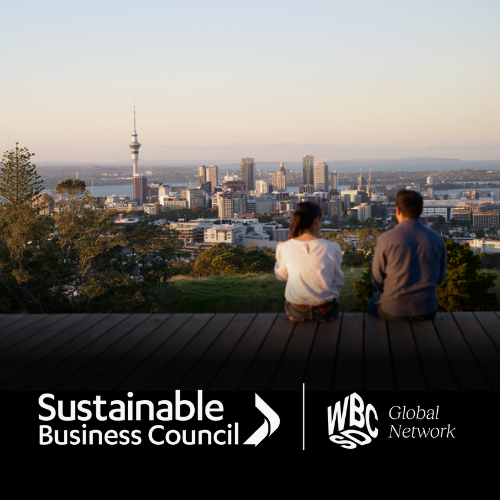The buzz in Bonn: How global action on climate change is playing out in NZ
Twenty five thousand people representing 850 organisations from around the world met in Bonn, Germany, last month to discuss how the world can mitigate the effects of climate change and transition to a low emissions economy.
The huge number of people, governments and businesses at the UN-led conference showed just how important action on climate change has become. It is arguably the single greatest issue facing society today.
Sustainable Business Council members made significant announcements during the event – the UN’s 23rd Conference of the Parties, also known as COP23.
For example, Fonterra sent representatives to Bonn, and whilst standing next to our Climate Change Minister, committed to reduce the cooperative’s global emissions to net zero by 2050, with a 30 per cent reduction by 2030 from a 2015 baseline. This is really ambitious. It is important not to underestimate the significance of this step. Agriculture makes up nearly half of our emissions.
Air New Zealand and Mercury also announced their targets to transition to electric transport by 2030, and joined the global EV100 campaign that encourages organisations to use their buying power and influence to build demand and help reduce the cost barriers to mainstream use of electric vehicles.
Changes evident
Since last year’s UN climate conference I’ve noticed a lot has changed. It feels like there has been a major surge in the level of business’ ambition.
Nearly 15 of SBC’s members have now set bold, long-term targets to reduce their emissions, which align with, or go further than, New Zealand’s target under the Paris Agreement.
For example, Vector aims to be net zero by 2030, and Fujitsu and Toyota by 2050. And I know there are many other businesses coming up with similar targets, behind the scenes.
This impetus in the private sector is also evident in the public sector, as the new Labour-led government promises a Zero Carbon Act and Climate Change Commission.
Many of New Zealand’s top companies are already dedicating serious resource, personnel and money on emissions reductions programmes, so they can meet New Zealand’s target under the Paris Agreement to keep global warming within two degrees.
The shift towards sustainable procurement
One trend I am seeing emerge as a result of this is in supply chain management; a growing number of Kiwi companies are looking for suppliers that align with their own ambitions and will help them reduce their emissions, or operate in a more sustainable way.
For example, Z Energy has a Supplier Code of Conduct that helps set expectations for sustainability. Z says environmental credentials were the deciding factor in their recent decision to use an electricity supplier. The company has also asked potential off-shore suppliers to report on their emissions intensity at refineries, as well as trucking companies to report in the RFP process on their plans to reduce their footprint.
Cleaning company OCS’s chief executive CEO Gareth Marriott says sustainability commitments are not only “the right thing to do”, but are also what customers increasingly want. Two of its recent tenders had extensive sustainability requirements, including emissions reductions and environmental considerations for chemicals and cleaning equipment.
In the social procurement space, there are similar trends.
Auckland power company Vector is working with its subsidiaries, contractors and suppliers to try and ensure a living wage across its supply chain. After three years work on remuneration, Vector has become the first major corporate in New Zealand to become a living wage accredited employer. CEO Simon MacKenzie says fairness and equity is important, and procurement is one way the company can encourage other organisations to help address the inequality of living standards.
Starting sustainable business practices
The best way to reduce your emissions and climb into sustainability is to just start. First, I would recommend assessing your business for areas where you could reduce energy and fuel use, from production to packaging, transportation and waste management.
The government-funded Energy Efficiency and Conservation Authority (EECA) is focused on helping businesses save energy. They have a great website with free resources like the ‘Energy Management Journey Tool’, which helps businesses shave up to 20% off their costs.
Try switching off your office equipment at the weekends, or installing movement-sensitive lights that turn on automatically when people enter a room.
It is often the simple things that will bring you greater efficiencies.
Not only is emissions reduction the right thing to do, it will also save you money. And increasingly, sustainable business practices will put you in a stronger competitive position, as customers, businesses and investors look for products and services that better protect the environment and people.
Contact: Renee Graham, Communications Manager
Phone: +64274559104
Email:

